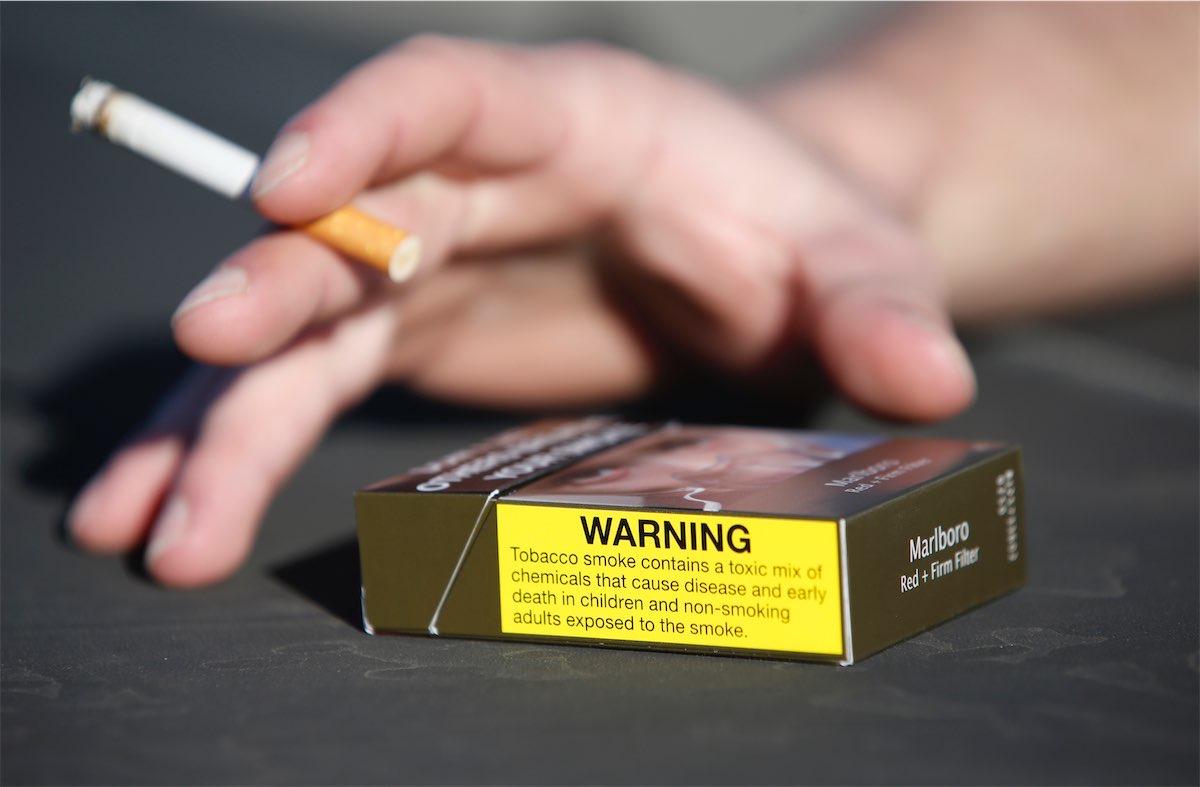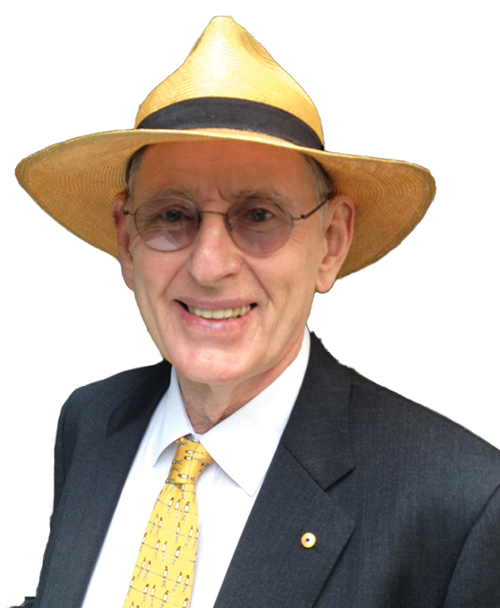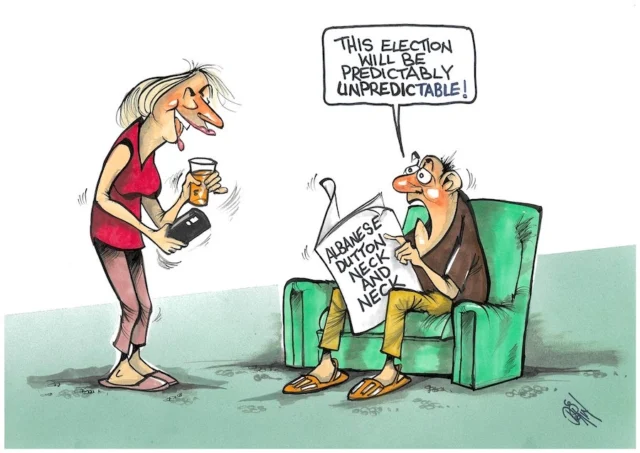
In Australia, as in other countries, cigarette smokers span the socioeconomic spectrum, but the poor are vastly over-represented, writes Prof ROSS FITZGERALD.
Not only do more low-income people smoke more compared to better-off members of the community, but they also smoke more cigarettes per day.

If we look at an Australian atlas showing the distribution of lung cancer, the parts that light up are the areas where low income and First Nations peoples live.
Indeed, the harmful effects of smoking cigarettes account for half the difference in the life expectancy gap between disadvantaged and advantaged Australians.
The last decade in Australia has been marked by sluggish wage growth and a cost-of-living crisis. These trends have been compounded for low-income smokers by the aggressively increasing price of cigarettes.
Australian cigarettes are the most expensive in the world. After a 282 per cent increase in cigarette tax since 2013, a legal packet of 20 cigarettes now costs about $40. In contrast, a black-market packet of 20 cigarettes only costs about $15.
In the treasurer’s Budget speech, much was made of the massive loss of excise from the legal sale of cigarettes. This massive drop in federal revenue from tobacco taxes, resulting from exponentially increasing illegal sales of cigarettes, has made a significant contribution to Australia’s budget deficit.
Cigarettes sold on the black market are widely available. In the last two years, more than 200 tobacconist shops have been firebombed and several people have been killed as criminal gangs fight for control of this lucrative trade.
Some senior police, such as Det-Supt Jason Kelly, of the Victoria Police, have publicly called for cigarette taxes to be lowered, or frozen. But tobacco control activists such as the ideologically-driven Health Minister Mark Butler and Prof Simon Chapman, from Sydney University, strenuously reject this proposal.
They argue that severe penalties and generous funding allocated to law enforcement will shrink the black market for cigarettes, tobacco and vapes. Yet the record is clear from around the world that such a hugely expensive approach has almost always resulted in making a bad problem even worse.
For years, annual surveys have concluded that the overwhelming majority of Australians who use illicit drugs report that obtaining drugs such as heroin, cocaine and amphetamine is “easy”or “very easy”.
These drugs have been illegal for decades and law enforcement to restrict drug supply is extremely well funded. Yet Rohan Pike, who has had more than 25 years’ experience in Commonwealth law enforcement, including the Australian Border Force, estimates that only 25 per cent of illicit drugs entering Australia are successfully intercepted.
Therefore, criminals who want to import illegal cigarettes, tobacco or vapes into Australia, have at least a 75 per cent chance of getting their cargo through undetected.
Cigarettes sold through the black-market pay no tax. Over the last four years, Australia’s high cigarette taxing policy has cost the country $31 billion. This is because the sky-high cigarette tax has diverted so much supply from legal to illegal sources.
Yet Health Minister Butler does not understand that his punitive policies are pushing smokers from legal to illegal, unregulated cigarettes. In Australia, smokers are being squeezed by high-priced cigarettes and also by the harsh restrictions on vaping availability.
Although sales of legal cigarette are falling rapidly in Australia, wastewater analysis indicates that tobacco consumption is higher than suggested by official cigarette sales data.
Health Minister Butler and Prime Minister Albanese seem oblivious to the fact that cigarette taxes are stimulating an increasingly violent black-market, and as a result that government revenue from cigarettes is haemorrhaging.
In contrast, after the Kiwis made the safer option of vaping more easily available than the deadly option of cigarettes, smoking if is falling faster in NZ than here.
Many smokers want to switch from high-risk to low-risk ways of consuming nicotine. An increasing number of tobacco companies also want to switch from cigarettes to smoke-free products, including vapes.
By 2035, revenue and profits for smoke-free products will exceed revenue and profits for cigarettes. In 2015, Philip Morris International, the world’s largest traded tobacco company, earned only $US0.2 billion of its net revenue from smoke-free products. But nine years later, in 2024, smoke-free products accounted for $US 14.7 billion, or 40 per cent of its net revenue.
While it’s no secret that the nicotine market is in a state of flux, the cigarette industry’s transition to smoke-free products is unstoppable. Investors increasingly prefer tobacco companies making a more rapid transformation. This is suggested by the fact they have a higher share price than companies moving slowly or not at all.
Why would any informed government try to stop someone moving from a dangerous option to a much safer option, especially when the poor among us are so severely punished for being smokers?
In my opinion, the fact that Australia cigarettes are so expensive (and getting more so) will cost the Albanese Labor government votes in the outer suburbs, rural and remote areas, which is where the forthcoming election will be largely decided.
The fact is that Labor’s punitive vape and tobacco policy hurts working class people and is a gift for woke, middle class non-smokers.
Moreover, the current ALP government is repeating many of the mistakes made by the Democratic Party in the US in 2024, which contributed so heavily to the failure of their presidential campaign.
In the lead up to the 2025 election, Mr Albanese and his health minister appear to be ignoring the needs of Labor’s traditional constituency – the struggling working class, the unemployed, the poor and the disadvantaged, in favour of the privileged middle class and the rich.
Ross Fitzgerald is Emeritus Professor of History and Politics at Griffith University. His recent books include a memoir, Fifty Years Sober: An Alcoholic’s Journey, and a co-authored four pack of Grafton Everest political satires The Ascent of Everest, both published by Hybrid in Melbourne, and also available as e-books.
Who can be trusted?
In a world of spin and confusion, there’s never been a more important time to support independent journalism in Canberra.
If you trust our work online and want to enforce the power of independent voices, I invite you to make a small contribution.
Every dollar of support is invested back into our journalism to help keep citynews.com.au strong and free.
Thank you,
Ian Meikle, editor









Leave a Reply